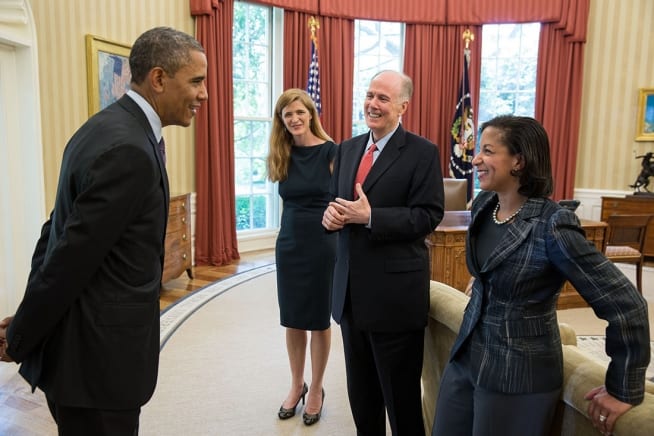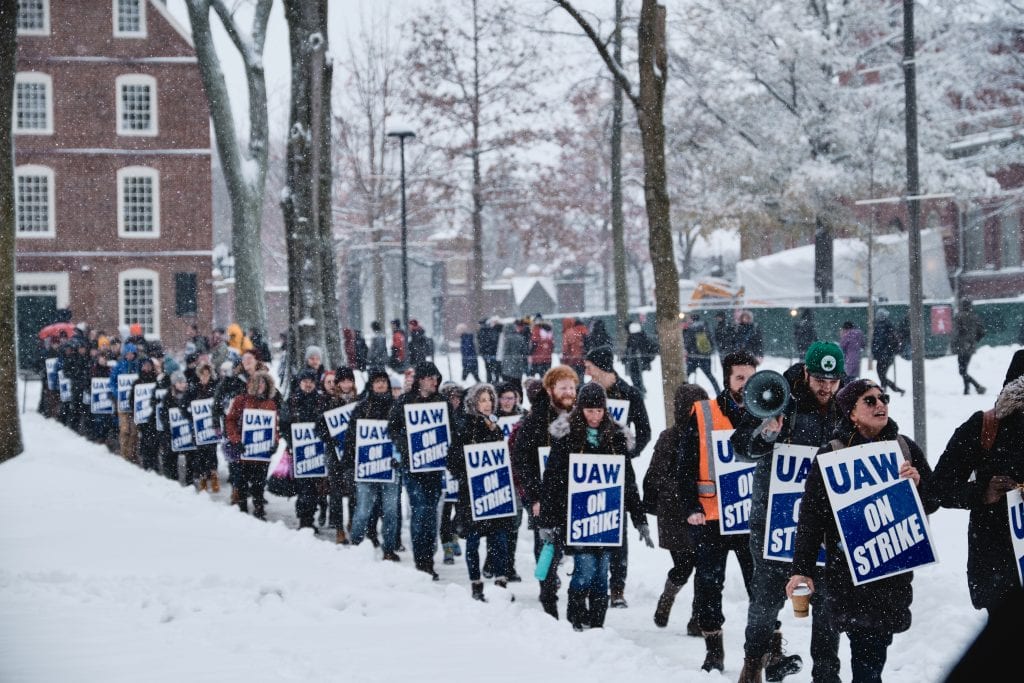

To get out of Sarajevo’s Butmir airport and into the city, you have to drive down the Ulica Kurta Schorka. That’s “Kurt Schork Road,” in honor of the American journalist who famously reported the story of “Bosnia’s Romeo and Juliet,” a Serb-Bosniak couple killed in the Siege of Sarajevo. Schork was killed on another assignment in Africa in 2000, but he is memorialized for his wartime dispatches on a long highway in the small, now-peaceful Balkan republic.
Journalists don’t usually get things named after them, but this was Bosnia: the country where journalists made a difference.
It’s hard to think of a higher-profile “world news” item in the ’90s than the Bosnian War. Beyond the expected aid workers and regional experts, Bosnia drew such sundry cosmopolitans as Joan Baez, Bernard-Henri Lévy, Annie Leibovitz, and Susan Sontag, who staged Waiting for Godot in wartime Sarajevo. Why did everyone pay attention to Bosnia? According to Sontag’s son David Rieff, it was due to “a genuine stupefaction that what was going on was occurring in Europe.” Maybe so, or maybe it was an appetite at the time for NATO expansion. Perhaps, too, the immediacy of the violent images broadcast out of Bosnia’s capital city, a jewel box reduced to rubble. For the West, it was The War, far more so than coterminous conflicts in places like Chechnya and Somalia.
Also in the wartime mix, though not yet notable, was a 22-year-old Samantha Power, future celebrated author, anti-genocide activist, National Security Council member, and youngest American ambassador to the United Nations. An Irish immigrant fresh out of Yale, she wrote freelance dispatches for American and Irish papers for two years before packing up for Harvard Law School, where she would quickly distinguish herself in legal academia. By her own account, Power wasn’t cut out to be a journalist, temperament-wise. From day one she wanted to change things, not just describe them. The point of her reports was to get the U.S. government to pay attention to—and save—Bosnia. Which it eventually did, leading an unprecedented NATO intervention in 1995, but only after Power had departed. Still, she “reported her heart out” from Bosnia, she writes plaintively in her new memoir, The Education of an Idealist, only to run up against the limits of news editors’ appetites for war coverage.
That was probably the last time Power’s ideas met a less than captive audience. While still a Harvard Law student, she helped open the Carr Center for Human Rights. In 2002, she published her first book, A Problem from Hell, a rousing call for American liberal interventionism that won her rapturous reviews, a Pulitzer Prize, and, six years later, a place on then-Senator Obama’s foreign policy team. Power’s stunning rise speaks to a hunger, among the American political-cultural elite, for the kind of muscular, hawkish, uniquely American notion of humanitarianism she offered.
It is obvious—from Power’s incessant evocation of Bosnia and self-identification as a former war correspondent—that the extraordinary arc of events in the Balkans shaped the worldview that so endeared her to this elite: Bosnia was enough to confirm her youthful ideas of what America could do in the world. Power’s basic and consistent narrative ever since 1993 is that the U.S. should intervene, sometimes with military force, to stop humanitarian emergencies and especially genocides in any country, with allowance for a fairly large margin of error.
Imagine for a moment, though, that the U.S. had not intervened in Bosnia in 1995. Her new memoir might be called The Education of a Nihilist. More likely, she might not have reached a station in life to write a memoir at all. Power has only lived in two countries in her adult life—the U.S. and Bosnia—and it shows.
Like Power, I am a child of immigrants who grew up identifying wholly as an American, a sensibility nurtured from our suburban public schools to our private universities. Like Power, I moved abroad a year out of college to work as a freelance foreign correspondent, and, like her, I took the LSAT “just in case.” Unlike her, I went to Indonesia.
There, U.S. intervention meant supporting the 1965 military-led mass murder of up to a million suspected Communists and leftists that ushered in a 33-year-long dictatorship. Reporting in this country “as an American” was an experience colored with deep humility and sometimes embarrassment.
I usually thought about American engagement, if at all, in harm-reduction terms: I hoped that reporting on conditions in Ivanka Trump’s clothing factory in West Java might lead the American President’s daughter to improve her brand’s labor practices; that amplifying the concerns of miners at the extractive, American-run gold mine in West Papua would advance their cause; or that covering new revelations of how Indonesia’s mass killings were directly supported by the C.I.A. might put one more crack in Indonesian citizens’ unspoken taboo against discussing the dark episode.
I moved to Indonesia fifteen years after 9/11, well past the so-called end of history, and history’s defiant, hydra-like return. I arrived with no illusions that living in one distant country as a young American journalist would provide enough fodder for a metanarrative about American interventionism. If, like Power, I had extrapolated a worldview from my experience of a single country, I could have spun out my Indonesia years into an explanatory dictum that the U.S. should never do anything abroad ever again. (I don’t believe this.) But: a worldview? In this economy?
The Education of an Idealist is incredibly long, at forty chapters, and not tightly edited. It’s written in flat, workmanlike prose. Several of the punchier anecdotes are recycled from profiles of Power in The New Yorker and Vanity Fair. One hungers for an unusual insight in its 500-plus pages. Instead, there are passing mentions of mysterious anxiety attacks and a few stalled forays into personal therapy, but these feel like they were grafted on in response to a pointed editor’s note.
The Education is not a bildungsmemoir. Power has accumulated new experiences, but it’s not clear that they have generated any new ideas. In the Obama administration, this was likely by design. She was hired to be exactly who she is, an outspoken interventionist; her brushes with foreign policy’s pace and parameters lead her only to deflect that “I did what was within my power to do,” when it came to such thorny situations as the Syrian War.
Power extracts no real lessons from the most intense foreign policy issues of those eight years, which are flatly retold here. It is hard to tell what conclusions she draws from Libya, where she and other humanitarian hawks convinced Obama to intervene in 2011 and overthrow (by way of grotesque murder) the dictator Muamer Gaddafi. The country is wracked to this day by Islamist insurgencies, sectarian violence, and chaos. And then there’s Syria, where Obama famously drew and then ignored his own “red line” in response to Bashar al-Assad’s use of chemical weapons. Power once wrote glowingly in A Problem from Hell of the U.S. officials who resigned due to inaction in Bosnia. She seems to have regarded inaction in Syria as less disgraceful. Indeed, she writes, she “never seriously considered leaving” the administration. Her penance is to read a bunch of reports about the situation in Syria, which we are to understand as a sign of a sensitive moral temperament. Her account of such episodes—among the Obama administration’s worst foreign policy embarrassments—adds little to the public record.
The hamartia of A Problem from Hell is its selective omissions. It’s a book about American failures to prevent genocides that is haunted by the specter of the mass murders actively enabled by the U.S. Rwanda, Armenia, Iraq, and Bosnia get long chapters, but nowhere is, for instance, the mass murder in Indonesia; nor Indonesia’s subsequent colonization of Timor-Leste, which was supported by President Gerald Ford and killed up to 200,000 Timorese; nor Guatemala, where over 42,000 Mayan civilians were slaughtered over two decades, with gear from and scrupulous monitoring by the U.S.
It’s now apparent that this tunnel vision was not a narrative device but a modus operandi. In An Education, the U.S.’s controversial ally Saudi Arabia is not mentioned even once. Nor is the disastrous war in Yemen, which has been dubbed the “graveyard of the Obama doctrine.”
Ironically, as she recounts it, Power’s nomination to the U.N. ambassadorship was contested by conservatives who thought she was not sufficiently “proud to be an American.” But her learned naiveté, ahistorical optimism, and warm embrace of military force could have emerged from no other country. Throughout the 20th century, the U.S. foregrounded the rhetoric of human rights and democracy in justifying its expansionary designs. This, according to Woodrow Wilson, was America’s “only distinction” from other imperial powers, which used their force and wealth “for the oppression of mankind and their own aggrandizement,” unlike the United States, which acted “for the elevation of the spirit of the human race.”
Power’s possible non-confirmation leads to one of the book’s most chilling episodes, when she is coached by her husband, behavioral economist and fellow Obama appointee Cass Sunstein, and others about how to convincingly project enthusiasm for American exceptionalism at her Senate hearing. Power’s inner circle knows how unusual it is for an activist—particularly one with an extensive body of published materials open to scrutiny—to undergo such a hearing. (Her early public writings, it should be noted, engage with past American folly to such an extent that her present-day posture of righteous innocence ought to be considered a deliberate and perhaps cynical choice.)
At the hearing, exactly as they expect, Senator Marco Rubio cites a 2003 article about the Iraq War in which Power wrote, “the question today is whether the United States is structurally capable of using its tremendous power for the good of others.” U.S. foreign policy, she argued, “needs not tweaking but overhauling.” What was required was “a historical reckoning with crimes committed, sponsored, or permitted by the United States. She proposed a “doctrine of the mea culpa.”
What crimes should America apologize for, Senator Rubio asks, and she gives a lengthy answer about American non-intervention in Rwanda and President Clinton’s subsequent apology. That being said:
“I, as an immigrant to this country,” she says, “think that this country is the greatest country on Earth… I would never apologize for America. America is the light to the world.”
Rwanda was a crime the U.S. permitted, Rubio presses. What about the crimes it committed or sponsored?
She repeats, again and again, her rehearsed line.
“So your answer to whether we’ve committed crimes is that we’re the greatest country on earth?” asks Rubio, incredulous.
She opts to run out the clock.
“Again, sir, the greatest country on Earth. We have nothing to apologize for.”
When Power came home from Bosnia, she almost went to work for American foreign policy’s ur-non-apologist, Richard Holbrooke, who really did believe, with no caveats, that America was a light to the world. She turned down his job offer and instead went to law school, which was smart; within twenty years she would be appointed U.N. ambassador, his old post.
Holbrooke, a diplomat who served in every Democratic administration since the late 1960s, was almost born too late to wield American benevolence abroad. His first foreign assignment was Vietnam. As George Packer recounts in his biography Our Man: Richard Holbrooke and the End of the American Century, Holbrooke found belated and unexpected salvation only in Bosnia, where he flew on his own dime and forged a role for himself out of sheer willpower. After spending the last dregs of his political capital making it a cause célèbre in D.C., Holbrooke MacGyvered the peace accords that still provide Bosnia with its constitution today. Holbrooke’s career began and ended in the disastrous theaters of Vietnam and Afghanistan, but the sui generis Bosnia adventure saved his reputation: he gets to be a complicated hero rather than another frustrated diplomat. (This is the ultimately sympathetic stance of Packer, who also supported the Iraq War.)
Did Holbrooke and Power represent an old guard and a new guard, or were they members of the same guard all along? After all, they were contemporaneous colleagues under Obama (who hired Holbrooke, albeit mainly as a favor to Secretary of State Hillary Clinton). Power once edited a memorial volume on Holbrooke called The Unquiet American and kept his funeral program at her UN mission desk.
Somehow, “Vietnam syndrome,” referring to the generalized distaste for interventionism after the U.S.’s failure to defeat North Vietnamese forces in 1975, never stuck to Holbrooke. His faith in America was more theoretical than actual, so it could not be dented or amended by things that happened. Instead, Holbrooke, and later Power, were both struck with what I think of as “Bosnia syndrome,” a quixotic zeal for humanitarian intervention premised on that singular Balkan theater.
But what exactly did their liberal interventionist guard(s) stand for? And what became of those lauded interventions in Bosnia, and then Kosovo, the yardsticks by which we still measure good American intentions? Neither can really be considered a democratic success story. Bosnia’s entire constitution is still an annex of the Dayton Agreement brokered by Holbrooke in Ohio, which means that its population of 3.5 million elects three simultaneous presidents—one for each major ethnic group —who rotate, bizarrely, on eight-month terms. About 60% of young people in Bosnia are unemployed, and their democracy is chaperoned by a figure called the “High Representative,” an externally appointed diplomat from a foreign country. Meanwhile Kosovo, Power’s perennial example of intervention-gone-right, is still not fully recognized by the international community. Its population, the youngest in Europe, grows more dispirited by the day, and opportunities for migration are severely limited. In the capital, Pristina, there stands an enormous statue of Bill Clinton, as well as a “Hillary” pantsuit boutique. There’s also a Bulevard Riçard Holbruk.
It is undoubtedly good that the mass killings, wars, and genocide in those two countries were stopped. But stable governments do not simply rush in to fill the vacuum of a humanitarian intervention. Thinking that far ahead is never a huge priority for interventionists. Holbrooke drew up his initial recommendations for President Clinton after a whirlwind 24-hour trip to Bosnia on New Year’s Day. A muscular set of morals, for Holbrooke and his school, not only could but should take the place of extensive ground knowledge. He criticized those who behaved otherwise. In one of his copious voice memo diaries, he remarks that a former Secretary of State “is quite intelligent, but his intellect, that of a lawyer, contains no framework, no conceptual values.”
Holbrooke had a framework, and like Power’s, it consisted of a core belief in the value of American intervention almost for its own sake. At the start of his career in Vietnam, he wrote to his then-fiancée: “Remember, what is true in foreign policy is also in this case true in love: inaction, inactivity is as much an action as action itself; it is as much of a decision to do nothing as it is to do something.”
If Power can be considered a young member of Holbrooke’s old guard, then it’s really only Obama who was new—too new, with a minimalist foreign policy vision that seems to have left no lasting traces on Washington. Tellingly, Obama was less enthralled by the Bosnia intervention, as he made apparent to Power at their first meeting. Over a steak dinner in DC in 2005, she described crying at the news of the NATO intervention to bomb the Serbs in 1995. “Why the tears?” Obama asked her. “I guess relief that America had saved all those people,” she told him. “Hmm,” said Obama.
Obama was not naive about the U.S.’s role in the world. He’d spent part of his childhood in Indonesia, right after the U.S.-sponsored coup, and started his political career amidst the indignities of endless war in Iraq and Afghanistan. But he nevertheless saw something in Power. When she joined his Security Council in 2009, he would check in to ask her, “What ideals have I been letting down lately?” He seems to have relied on Power as an emotive, activist voice where he was ever the coolheaded, reticent law professor. When she passionately rips into a Russian air strike above Ukraine in 2014, to the consternation of some of his policy team, Obama retorts, “Why the hell do you think I put Samantha up there? She is doing exactly what she should be doing.”
It’s interesting that Obama stacked his foreign policy team with so many hawks whose beliefs were forged in that fin-de-siècle eruption of liberal interventionism—not just Power and Holbrooke, but also Susan Rice, who was deeply affected by the Rwandan genocide, and of course Clinton herself. Together, they essentially brought 20th century ideas into 21st century diplomacy. Perhaps their appointments were a deliberate effort, by the president most daringly skeptical of American exceptionalism in recent history, to balance out his own anti-interventionist instincts.
“Human rights,” as the legal scholar Samuel Moyn has explained, are a surprisingly recent discursive invention, and their content as it is understood today was by no means predetermined. It was only in the 1970s that human rights discourse trained its focus on individual political rights rather than collective social and economic rights. It is no coincidence, Moyn writes in The Last Utopia (2010) and Not Enough (2018), that this liberal (that is, individual-centric) human rights discourse flowered alongside the neoliberal economic consensus. The language of “human rights” grew to critique specific people and conflicts, but not systems. By the time Power made her name in the new millennium as a “human rights” activist who targeted very specific conflicts, everyone knew exactly whom/what she was addressing: certain bad actors, bad countries, bad governments.
Power’s first book was a product of its time, the very end of the 20th century, when neocons and liberal interventionists found many elective affinities. The notion of “preventable” genocides that justify external force was a distinct construct of that decade, as the intellectual historian Stephen Wertheim explains in his perceptive essay “A Solution from Hell.” For example, Wertheim writes, the now-commonplace idea that the U.S. could have “easily” stopped the 1994 Rwandan genocide came together late in the millennium. It was not considered self-evident at the time or for about four years afterward. Per his account, it took a few years after winning the Cold War for American intellectuals to develop a new framework for interventionism. Clinton’s first administration, which started in 1993, barely contemplated intervention because there was not yet a “norm” or “transcendent imperative” that the U.S. try to stop a genocide anywhere in the world. But starting around 1998, the new liberal interventionists began to argue that military action should be a first resort. The only difference between them and the neocons, per Wertheim, was that the former preferred unilateral action, while the latter “grudgingly accepted” it. By Clinton’s second administration, the mood had turned, Clinton announced a sweeping anti-genocide policy in June 1999—right after the successful Kosovo bombing. Once again, an intervention in a small Balkan country had generated outsize momentum in the imagination of American policymakers.
History is always up for grabs. But the cavalcade of factors that led to the late-’90s interventionist consensus show just how well-timed Power’s ideas were. Her book, which as Wertheim also notes, presented no extended counterfactuals, assumed boundless American military capacity, and barely considered what comes after intervention—meaning, it was full of holes—was nevertheless ecstatically received. And it assumed that American intervention would be basically appreciated, anywhere, and its motives presumed good. The year was 2002, and the bilateral interventionist consensus was at its post-9/11 peak. The establishment needed to reassure itself that the incipient Iraq invasion would not be a catastrophe.
Within this reading of history, if Power didn’t exist, America would have invented her: She is not merely a lone intellectual, but the face and voice of a specific, crusading, post-Cold-War zeitgeist.
Before she joined the Obama administration, Power occupied the extremely timestamped role of celebrity anti-genocide activist. She was a key voice in the “Save Darfur” movement to stop the Arab Sudanese government’s massacre of Black Sudanese civilians. The movement filtered all the way down to my own high school in New Jersey, where we attended student-organized Save Darfur concerts in the late aughts and even played a UN-designed computer game where you embody a Sudanese villager fleeing a Janjaweed militia.
The idea behind Save Darfur was that citizen action can “demand a different kind of foreign policy from Washington,” as one of Power’s collaborators tells her during these years, inducing governments to do “the right thing, or less of the wrong thing, if people make clear that they care.” The unmentioned irony is that the Save Darfur movement peaked right after the Iraq invasion, when the largest anti-war protests in world history went largely ignored.
In DC, Power retained this grassroots mindset to illogical effect. She notes that the crowds who once came out to Save Darfur in the mid-2000’s did not do so for “Syria,” though she fails to acknowledge the many ways in which the situations were different. The multi-party Syrian Civil War, though an undeniable humanitarian tragedy, did not present a clear-cut role for the U.S., which is why Obama himself dithered for so long. Nor was there much civilian appetite for intervention in yet another Middle Eastern conflict. Even if you followed the events as closely as possible, what exactly could a lay citizen advocate for?
It’s inevitable that momentous episodes in the U.S.’s foreign policy escapades, like Bosnia, have a long tail. Holbrooke left Vietnam in his twenties with what William Safire dubbed a “new boys’ network” of ideologues and political operatives who would influence him for the rest of his long career, right up until he died of a heart attack incurred in Hillary Clinton’s Foggy Bottom office. We have yet to see the newest boys and girls’ network forged by the trials of Iraq and Afghanistan, but it is almost certain that by the time those lessons are absorbed by our establishment, a whole new set of challenges will emerge, and we will find ourselves as heavy on our feet as ever. The imminent “post-COVID-19” era will almost certainly be navigated by the “post-9/11” establishment.
Whoever wins this year’s election will inherit or continue to run a multipolar world in which America is nevertheless the richest country, and even if it loses that title, it will remain for quite a while longer as the world’s richest democracy. So the imperative to promote what Moyn has identified as universal socioeconomic rights is as strong as ever. It’s possible that we will regain our appetite for interventionism soon; Packer’s account of the apathetic isolationism of post-Cold-War 90’s sounds familiar, but we came out of that decade preemptively bombing Kosovo.
In 2018, even the Pentagon announced a pivot from the War on Terror to so-called “great-power competition” with China and Russia. This sounds a lot like a new Cold War. So it’s especially concerning that few have offered a robust alternative to bipartisan hawkishness, either of the liberal interventionist or neocon strain. Though Trump is chaotically isolationist in temperament, he is also inconsistent (approving, for instance, the assassination of Qassim Soleimani), so it’s best not to generalize. Modern leftists have found their own, penitent isolationist vernacular, by which all the overreaches of the CIA and War on Terror constitute sufficient evidence to simply retreat, never intervene anywhere again, and in some formulations, even “let China” take the lead in the next century. The impulse to acknowledge our historical record is productive, but such a retreat is not desirable. As corny as “America is a light to the world” sounds in 2020, the year has also shown the terrifying reality of a world in which the U.S. not only fails to lead, but lags behind.
A way forward may be found in the example of Obama himself, who despite all the drone strikes, prototyped a minor key diplomacy in the late years of his administration, breaking away from his more hawkish advisors in favor of magnanimous leadership shot through with humility. Look to his experiments with declassification diplomacy in South America, where he handed over CIA files that lay out America’s calamitous interventions; by acknowledging America’s corrosive actions there in the past, he helped neutralize bilateral relations in the present. Or even take his signature, pragmatic achievements: drafting the Iran Deal and normalizing Cuba relations. (Famously he had to force them through with executive orders and they were easy to erase once Trump took office, which shows how much they broke with norms.) In the most interesting case studies in Power’s otherwise ultra perfunctory memoir, the Obama administration even made several productive “humanitarian interventions,” using 21st century instruments rather than 20th century ideas: The heroic effort to contain Ebola in Africa, for instance, or the air-drops of supplies to Yazidis under siege by ISIS.
These exemplify the U.S.’s still-unparalleled potential to do good abroad—the presiding concern of Power’s career—especially when the world’s largest military is used to tackle a clearly defined problem of subnational scope. But since such interventions don’t have an obvious connecting thread, and don’t generate a whole worldview, it is hard for the so-called Blob to learn much from them. There is no single “framework,” nor any set of “conceptual values,” to be gleaned.
Eight months after her memoir was published, Power displayed some recognition of the fact that public health—rather than regime change, humanitarian intervention, or even promoting democracy—is now the most important frontier of foreign policy. In an April New York Times op-ed, she attempted to bring the lessons of Ebola to bear on the new crisis. But she stumbled right out of the gate, asserting that “The United States leads no matter what it does.” Were this written in January or February, perhaps it would hold water, but by April, it read as farce. The U.S. had handily bungled everything from testing to equipment to lockdowns, to the horror and amazement of much of the rest of the world. Other nations, Power maintains, “still look to us in times of crisis.” If even the disaster of our pandemic response does not shake her old line that America has nothing to apologize for, what will? Every great power’s foreign policy must be driven by a sense of exceptionalism, but Power’s pandemic-era rhetoric amounts to fantasy.
In yet another COVID-19 op-ed, for Time, she observes, accurately, that too much of U.S. foreign policy in the 21st century has been defined by a disproportionate focus on fighting “terrorism” and endless Middle East wars. Unlike much of Power’s plank, this reflects the overall Obama doctrine, wherein the former President struggled mightily to “pivot to Asia” against the kicking and screaming military-industrial complex. But Power, whose career has revolved around a bizarrely narrow focus—“preventing” genocides in countries that are not too politically risky to bomb—has little credibility in making this particular argument. The person dispassionately describing the excesses of the so-called War on Terror is the same one who expended monumental efforts lobbying for more intervention in Syria and regime change in Libya. Bosnia Syndrome is hard to shake off.
Determining what good the U.S. can do in the world, not from a naive state of grace but in light of everything we have done so far, will be the diplomatic task of the rest of the century. Power’s ideological stasis means she cannot really metabolize our current shortcomings into her prescriptions. But she’s just one person. There remains a huge vacuum today for asterisked optimism about the U.S.’s role in the world, patriotism with humility, and ambitions circumscribed by historical precedent.
Meanwhile, Power’s renaissance is not limited to the papers; she has not ruled out running for elected office and also seems like an obvious cabinet pick for the next Democratic president. Mainstream reviews of her memoir focused less on its content than on premature elegy for a time when principled, moral meritocrats like her once served our country. Having changed her mind on almost nothing since leaving Bosnia, what would she really gain from doing so at this point? She found her line early, was richly rewarded for repeating it, and was hired to repeat it in Washington and at the U.N. She did, as Obama said, exactly what she was put there to do. And as the interventionist caucus in D.C. quietly re-feathers its nest, amidst the uniquely chaotic isolationism of the present administration, she will probably get a chance to do it again.
Krithika Varagur is a journalist who reports from Southeast and South Asia. Her first book, The Call: Inside the Global Saudi Religious Project, was published in April.



